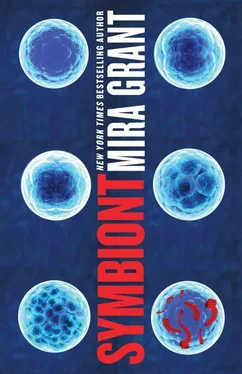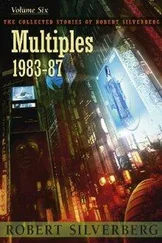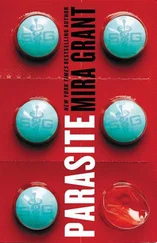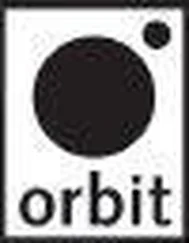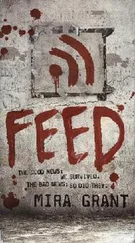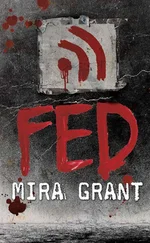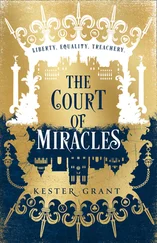We walked back to the elevator lobby in silence. Nathan didn’t even ask where we were going; he just stood there, letting me pick the floor we were going to, waiting until I was ready to speak.
“Knowing the directions doesn’t mean you ought to go,” I murmured, and pressed the button for the roof.
Nathan put his hand on my shoulder, and didn’t say anything.
Cold rage and hot misery mixed in my stomach, forming a substance that felt like ice and lava at the same time. It made it difficult to think or swallow, but I forced myself to keep breathing, and said, “He always acted like he loved me, you know? Or like he at least cared about me. And I knew he was lying—even when I thought I was human I knew he was lying—but I didn’t mind so much, because it was better than having him act like I didn’t matter.” Lots of people had pretended to care about me, Sally’s father and Sherman among them. I was getting awfully tired of men who didn’t give a damn about me as me coming back into my life.
“He knew what you were from the first time he laid eyes on you,” said Nathan. “Maybe neither one of us could see it at the time, but it’s clear in retrospect. He was using you.”
“He was using me,” I agreed, feeling the hot/cold mass in my stomach give another lurch. “He couldn’t have done what he did to Tansy if he hadn’t been able to get so much information about me first. I taught him how to take her apart. I didn’t even realize I was doing it, but I did. I taught him how to kill my sister.”
Nathan’s reflection in the elevator wall winced in time with the real thing, whose hand clenched down on my shoulder in sympathetic misery. “You were working almost entirely with scientists who thought of you as nothing more than a test subject,” he said, voice pitched low. “Dr. Banks did terrible things to you even if you didn’t realize they were happening. But this is not your fault. Tansy is not your fault.”
“How is this not my fault?” The elevator slowed, stopped; the doors slid open, revealing the carefully tended vegetable beds that covered the roof. The morning shift had already come and gone, and the automatic hydroponic systems were keeping the beds irrigated. I stepped out of the elevator, pausing long enough for Nathan to pace me, and then started across the roof toward the nearest canvas cabana tent. About a dozen of them had been liberated from the local Target shops, and they dotted the roof like so many garishly colored oases. Sunstroke was a real concern when you insisted on taking dark-adapted lab rats and putting them to work on a private farm.
“You didn’t know,” Nathan said. “Everyone around you was working very hard to make sure you didn’t know.”
I all but threw myself into a wicker couch designed for outdoor use. Nathan sat down next to me, a little more decorously. He did most things a little more decorously than I did, really. “You figured it out,” I said accusingly.
“My mother told me.” He paused and then laughed unsteadily. “You know, I still haven’t had a chance to really think about those words? ‘My mother.’ She was my best friend, she was everything I had in the world, and then she was gone and everyone told me she was never coming back. I mourned her. I buried her. I was never going to see her again. And then my weird, wonderful girlfriend asked me to go on a road trip with her, and started quoting bits of a book I hadn’t seen in years.”
I sat up and scooted over to rest my head against his shoulder. Nathan stroked my hair with one hand.
“I think I realized, you know,” he said. “When you started quoting Don’t Go Out Alone , I think I realized. I just didn’t… I didn’t want to realize, because I didn’t want to live in a world where my mother would have chosen science over me. She was my mom. I wanted her to stay with me forever, not go running off as soon as she found a better experiment.”
There was a broken edge to his words that I barely recognized: this wasn’t a side of Nathan that I saw very often, or really knew how to handle. He was usually the calm, collected one, and when he couldn’t fix something, he stepped back and found another approach. He wasn’t the one who fell apart. That didn’t mean he wasn’t allowed: it just meant that when it happened, I wasn’t going to interfere.
“And then there she was! Different, but we’re all different now, aren’t we? We went through the broken doors. That’s how you turn yourself into a monster.” Nathan sighed, kissing the top of my head before he continued: “She opened them as wide as she could and she told me it was all right to look through and see what was on the other side. She said it was what I’d have to do if I wanted to catch up with you, since you’d been born on the other side of those doors. Sally Mitchell never saw them open, but you’ve never seen them closed.”
I tilted my head back, frowning up at him. “I don’t understand.”
“That’s all right. I don’t either, not really.” Nathan sighed. “Mom left me because she had to. She did what she felt was right, and she did it to protect me. But I think sometimes… I think that before Tansy disappeared, she thought her children were invincible. You, me, Adam, Tansy—we couldn’t be killed, because she was looking at everything through the filter of that damn children’s book. She’s shaped her image of the world around someone else’s fantasy.”
I couldn’t stop myself. “Why?”
“Because it’s easier. It’s so much easier to say, ‘This is a story, and there are heroes and villains, and there’s an ending, and when we get there the book will close and we’ll all live happily ever after.’” Nathan kissed my head again. “Mom is… her mind works in strange ways. It always has. Dad used to try to explain it to me, after she left us, when I was so sad I didn’t feel like I could get out of bed in the morning. He said she knew she wasn’t always the best with morals and ethics and other things that most people thought were important, because for her, the science—the knowledge—always came first. But she didn’t like hurting people. So sometimes she would fall back to what she saw as a safe place, and she’d retreat to Simone’s book, because in Simone’s book, opening the broken doors always resulted in good things. It always brought the children and the monsters back together.”
“It sounds like maybe your mom needs to see my therapist.” Dr. Morrison was probably dead or in quarantine somewhere. The idea didn’t bother me much.
Nathan pulled away enough to shoot me an amused look. “You hated your therapist,” he said.
“Yeah, but that doesn’t mean she doesn’t need someone to talk to. You’re her son. Adam is, too. I’m…” I paused before admitting, “I don’t really know what I am. I’m not her daughter—which is good, because it would make marrying you sort of creepy—but she thinks I am, and that’s weird. None of us are good for her to talk to. Maybe talking to someone else would help.”
“Maybe,” Nathan allowed. He sighed again. “This hasn’t been easy for any of us, has it? I found my mother but don’t have the time to stop and deal with it emotionally. You lost your whole world.”
“Not my whole world,” I corrected, and took his hand. We sat that way for a while, not saying anything, before I had to go and open my big mouth and ruin everything. “Sometimes I feel like your mom doesn’t know what to do with me. I’m the expendable one.”
Nathan was quiet for a long moment before he said, “I wish I could say you were wrong. But when you disappeared, she said we couldn’t try to rescue you, because it was too dangerous. To be fair, though, she said the same thing about Tansy. I think we’re all expendable to her. We’re all part of the story, and the story needs to be finished more than she needs to be kind.”
Читать дальше
